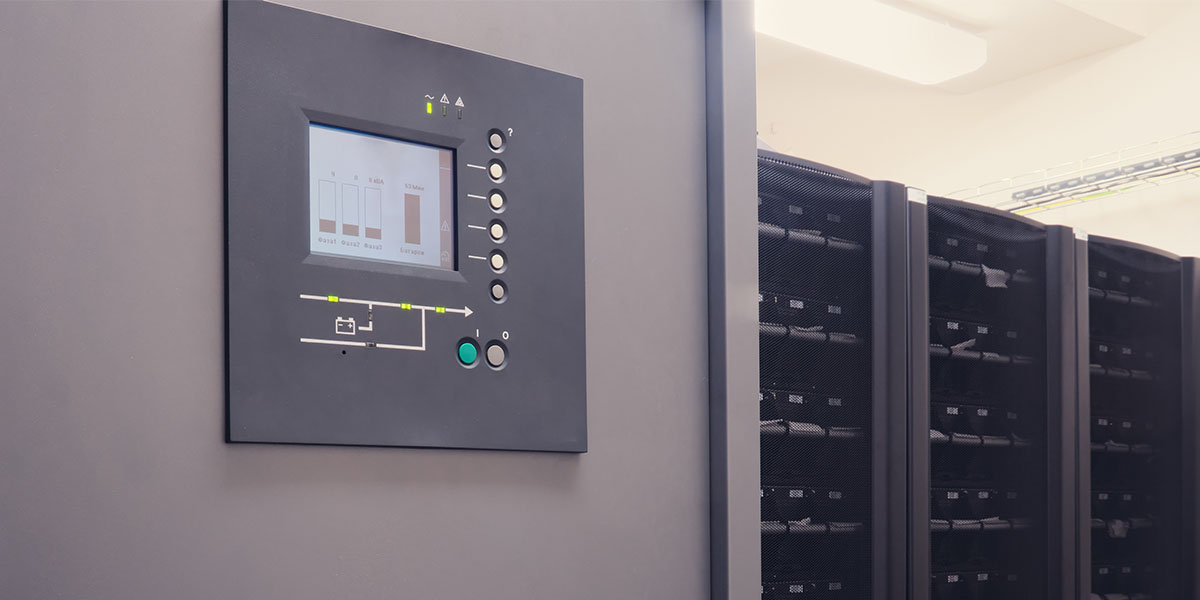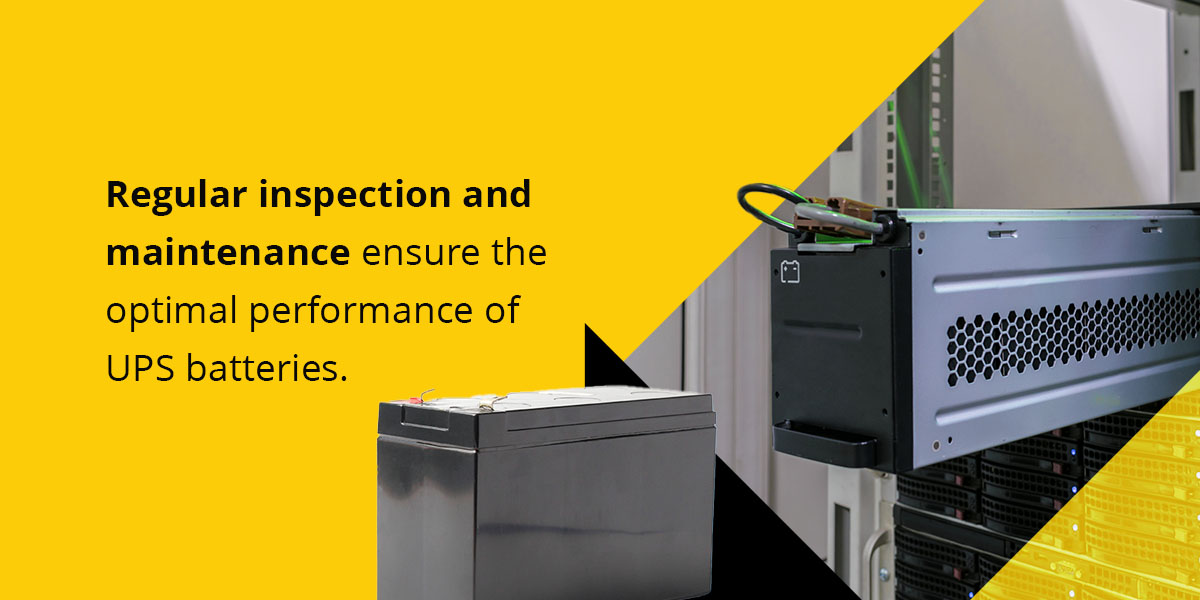

Uninterruptible power supply (UPS) systems are vital pieces of equipment that help ensure the reliability and protection of electrical systems. They offer significant advantages to users, such as buying time for equipment to operate continuously until a power source is established.
Keep reading to understand the functions of an uninterruptible power supply and how it works. Explore UPS systems’ capabilities and how they can benefit your business.
A UPS is an example of a continual power system. Also referred to as an uninterruptible power source, it supplies power to a load when the main or input source fails. Unlike traditional generators, UPS units provide backup electric power using energy stored in their battery packs. This enables the UPS to restore power immediately until a standby source becomes available.
UPS systems are designed with a surge protection shield to protect valuable equipment from voltage spikes. They are often used in industries where power interruptions have significant repercussions, such as hospitals, data centers, and telecommunications. UPS units vary in size and can protect a single computer or an entire building.
The main function of a UPS is to convert alternating current (AC) to direct current (DC) power and store it in an internal battery. It then converts the DC back to the AC to supply power to connected devices. The backup source provided by the UPS system gives users more time to save work and properly shut down equipment.
UPS systems play a vital role in mission-critical environments and life-and-death scenarios, buying enough time for users to operate equipment until power is restored. In the case of medical equipment, a UPS covers power gaps during outages, ensuring operational continuity. In military applications, UPS systems are essential for tactical deployment, communications, and other crucial operations.
A report published by the United States Energy Information Administration (EIA) revealed that electricity consumers in the U.S. experienced about five and a half hours of electricity interruptions in 2022.
In commercial settings where a steady power supply is critical, UPS systems are crucial. Below are a few examples of the benefits of installing an uninterruptible power supply.
UPS units ensure that equipment and machinery continue operating during power outages, preventing service delivery delays due to downtime. In medical settings, UPS systems are critical in delivering power to operating rooms and lifesaving medical equipment. In commercial environments, UPS systems facilitate the safe completion of complex processes.
UPS systems protect connected devices, such as computers and data center equipment. The uninterrupted power source from UPS units gives users ample time to save their work and shut down the equipment during outages, helping prevent significant data loss.
Power outages cause unintended interruptions in services and operations. The steady power supply from UPS systems reduces downtime and allows business processes to continue as usual. They convert power to keep equipment operational, helping maintain productivity even during outages.
UPS systems act as a filter that protects connected devices against outages. Regardless of the configuration, they provide a consistent power source and shield devices against power variances.
The steady power supply from UPS systems minimizes the risk of disruptions and contributes to operational safety across a wide range of industries. UPS installation also helps critical infrastructures comply with federal laws and regulations to maintain continuity of operations.
UPS systems are available in various sizes and configurations to meet diverse needs. Some units are ideal for a single device, while others can provide backup power for an entire building for hours. UPS systems have four main components that ensure optimal functionality regardless of the type. Knowing the functions of these components helps users maintain high-level performance.
Considered the lifeblood of any UPS system, batteries supply emergency power to the unit when the main line is down. UPS units are equipped with at least one string of batteries, the number of which varies according to the system’s DC voltage. Smaller UPS systems have the batteries inside the unit, while larger systems may house them in battery cabinets.

As UPS batteries are connected in a series of strings, the system can fail when one battery goes bad. Regular inspection and maintenance ensure the optimal performance of UPS batteries. Some of the most commonly used batteries for UPS units include valve-regulated lead acid (VRLA), lithium-ion, and vented lead-acid (VLA) — also known as flood-wet cell — batteries.
The rectifier is an important component in the UPS system’s double conversion process. It converts power from AC to DC and routes the DC power to the inverter. As the DC routing process occurs, the rectifier also works to recharge the UPS system’s batteries.
The inverter is the other half of the UPS system’s double conversion process. It converts incoming DC power from the rectifier to AC, enabling the UPS system to supply power to connected devices using power stored in its batteries. Another purpose of the inverter is to act as a filter that prevents the likelihood of voltage spikes and electrical noise.
While the inverter helps protect devices from power surges, the static bypass switch provides another layer of protection should the UPS system fail. In the event of a failure, the switch automatically closes the circuit and diverts the power around the other components, including the rectifier, inverter, and batteries.
The static bypass switch cannot filter power like what the rectifier and inverter do in the double conversion process. However, it enables equipment to remain operational despite loss of power or UPS failure.
Depending on your UPS configuration, your system might have other components. These parts contribute to the UPS’ overall functionality and may include:
Regular preventive maintenance is essential to ensure your UPS system performs as expected. Conduct visual inspections of each component, check for loose connections, and look for other obvious signs of wear, like burned insulation. Schedule inspections quarterly to ensure safety in your facility.
Thompson Power Systems is the go-to supplier of high-quality UPS systems and industrial equipment for companies across Alabama and northwest Florida. For over 60 years, we have been servicing customers in various industries, providing expert assessments, sales of new equipment and rental options.
We understand your business and can fulfill your needs with the best possible equipment. Contact us with product inquiries, and we’ll connect you to our specialists.